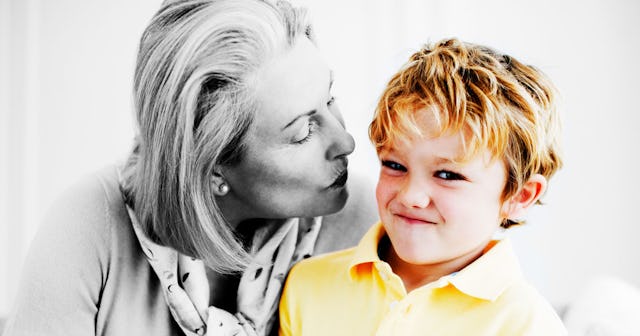Enthusiastic Consent Is The Goal, And This Is How It Goes In Our House

Say what you will about my abysmal parenting, there is one thing I hammer home to my four kids: I ensure they know they have the final say about their bodies (bodily autonomy) because it’s vital to teaching them about enthusiastic consent. Regardless of the activity, I want my children to understand that it is not just about someone saying, “No,” but about someone actively — and happily — saying, “Yes.”
Whether it is my kids telling me to stop kissing or tickling them, me not forcing my kids to hug or cuddle with relatives or family friends, navigating the boundaries and relations between siblings and friends, or even choosing what clothes to wear (or not), I repeatedly emphasize that it is their body, and my children decide who gets to touch them and how, what goes into or on their bodies, and what they choose to do with them.
Why am I so afraid?
The world in which we live is awesome — both in terms of inspiring awe or wonder as well as inspiring fear or terror. Whatever the current event or state of the world, this is always the case. However — and this is due in great part to a slew of privileges — only when I became a parent did I truly realize just how wild and fearsome the world could be.
Like clockwork, with every new baby, I would be happily nursing and praying for my child to have a good life — and I would downward spiral into a panic. In particular, I yearned to protect my children from the ways in which I was abused. But though I could control my own behavior and who my children interacted with, I ultimately could not control how other people treated my children when I wasn’t present.
For me, one of my biggest fears for my children was their physical safety and protection from sexual abuse and assault in their lifetimes. Though I did not experience sexual assault, I know so many people who have — especially in communities of color — that equipping my children to understand consent and protect themselves was paramount. I also did not want to raise children who felt entitled to other people’s bodies; I did not want to raise future Brock Turners.
The facts are horrifying.
In the U.S., approximately 1 in 9 girls and 1 in 53 boys under the age of 18 having experienced sexual abuse from an adult, about 1 in 5 women and 1 in 38 men having reported a rape or attempted rape, around 1 in 14 men having been forced to penetrate another person, and approximately 1 in 6 women and 1 in 10 men having experienced sexual coercion (where the other person uses pressure or persistence to wear you down).
And though these statistics are awful, I do not wish my children to live in fear, living reactively. I want to gift my children with control over their bodies and lives. I want my children to experience joy and pleasure and fun — especially when it pertains to sex if they desire it. Consent and body autonomy are key to their enjoyment and fulfillment.
What is body autonomy?
Tatiana Maksimova/Getty
Body autonomy (or bodily autonomy) is the concept that people have the right to make their own choices and decisions about their bodies without coercion. This is particularly important for women and women of color, non-binary and trans folks because historically — and currently — governments and other forces continue to legislate and attempt to control these bodies in particular.
Why is bodily autonomy important for consent?
Bodily autonomy allows for a person to recognize what the boundaries — physically, emotionally, and otherwise — of their body are, which necessitates defining and naming their body parts, emotions, desires, needs, and wants. It empowers our children to take ownership of their bodies — and to voice what they will and will not allow to their person — and hopefully, also teach them to extend that same right to other people.
In children, teaching them the anatomically correct names for their body parts protects them because not only does research show offenders are less likely to target knowledgeable children, but because it also equips children with specific language to clearly report actual or attempted abuse.
Plus, without such knowledge, how can consent occur?
Since consent is when a person voluntarily assents to the suggestion or proposition of someone else, it requires understanding and comprehension of the proposal. If the suggestion involves a person’s body, then it would also thus require a person — in this case, your child — know what is considered their body, know what behaviors or actions are being requested, and what that means for them and other people.
While I cannot shield my children from all the wrongs that can potentially happen to them, I can teach them about their bodies and where their rights to their body begin and end in relation to other people. I wish my kids to desire more than the absence of an objection — and seek, instead, enthusiastic consent.
This article was originally published on